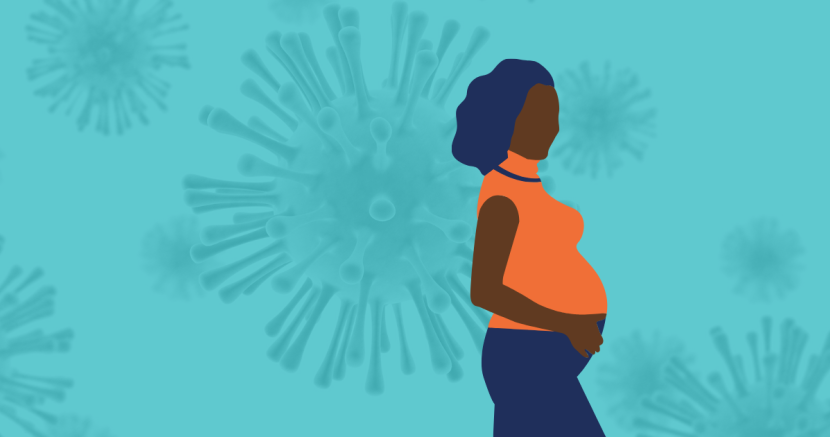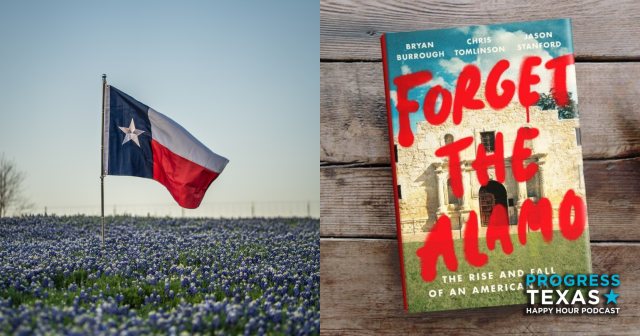The dangers of being Black and pregnant during a global health pandemic

Before COVID-19, Black mothers in the U.S. were facing a health crisis of their own: maternal mortality. Black women die from pregnancy-related issues nearly four times more often than white women.
And in Texas, although just 11.4% of births were to Black women, they accounted for 28.8% of all maternal deaths.
It’s obvious: Racism and implicit bias within our health care system, along with underfunded family support and health care programs, is killing Black mothers — but how are Black mothers navigating pregnancy and birth during a public health crisis that’s disproportionately killing Black folks?
“Being pregnant is a vulnerable state,” said Taylor Huntley, program coordinator and health educator at Mama Sana Vibrant Woman, a community organization that provides access to prenatal and postnatal care for women of color in Austin and Travis County. “Your body is changing.”
As a Black mother and community birth worker, Huntley understands how adding COVID-19 on top of what can be a difficult, high-risk journey for many Black women also shows that the financial barriers of birthing come into play. During the rise of COVID-19 in Texas, Huntley said Mama Sana Vibrant Woman has seen an increase in their clients who wish to pivot from their original plans of giving birth at a hospital to opting for a home birth with a midwife.
But that crucial decision is one that faces a hefty financial barrier, where some midwives charge anywhere from $3,000-$4,000 for their services, according to Huntley.
Mama Sana Vibrant Woman is working with mothers to help increase access to their services, but many women outside their service area are continuing to face these barriers.
Women are more likely to face unexpected health care costs than men and experience higher poverty rates than men, especially among women of color, where 20% of Black women experience poverty. Facing poverty or holding a low-wage job makes it harder to access adequate health care, but being pregnant on top of that places an even bigger financial burden, especially if a person wants to change their birthing plan.
“It’s hard when people want to make these decisions for their families and they’re met with these barriers,” Huntley said.
If we look at our current U.S. health care system before COVID-19, it’s easy to see that a system that is supposed to help the most vulnerable is in fact killing Black women at an alarming rate — their odds of surviving childbirth are comparable to those of women in countries such as Mexico and Uzbekistan, where much of the population live in poverty.
Texas has had a problem of its own when it comes to failing Black mothers, with its maternal death rate ranking in the middle of the U.S. states, still higher than the national average.
But when there’s a public health crisis like COVID-19 added to the picture, we see a stronger threat towards Black mothers who already are dealing with a system that won’t fight for their lives.
“You have to look at this medical system and how it's supposed to keep us alive and it’s killing us,” Huntley said.
Marsha Jones of the Afiya Center said COVID-19 has increased poor morbidity and mortality rates for Black folks, because many times Black folks have to travel greater distances to access health care — and now a public health crisis makes that harder, especially with shelter-in-place orders.
“Black folk are harmed overall, but the harm is further exacerbated when folk are Black, poor, or with fewer resources, and it increases stigma and shame. Folk are less likely to seek care until the last minute,” Jones said. “There are no protections for Black folk in this health care system, so we have to arm ourselves with knowledge and continue to fight to dismantle this system.”
If you or someone you know is interested in seeking free pregnancy, birth, and post-partum support in Austin or Travis County, please contact Mama Sana Vibrant Woman here. Taylor Huntley is the creative founder of Mama Mangos Care, a platform for millennial motherhood and ancestral spiritual practices. Learn more here.
The Afiya Center is the only Reproductive Justice organization in North Texas founded and directed by Black women, with a mission to serve Black women and girls by transforming their relationship with their sexual and reproductive health through addressing the consequences of reproduction oppression. They can be reached here.
_____
Sydney Greene is a digital content creator and freelance journalist based in Austin. By day, she serves as Digital Communications Coordinator for Deeds Not Words. When she's not managing social media platforms and digital campaigns, Sydney writes about gender, culture, and politics, where her writing has been featured in a variety of publications including Texas Monthly, The Austin Chronicle, Teen Vogue, USA Today, and more.
DONATE
Your donation supports our media and helps us keep it free of ads and paywalls.








